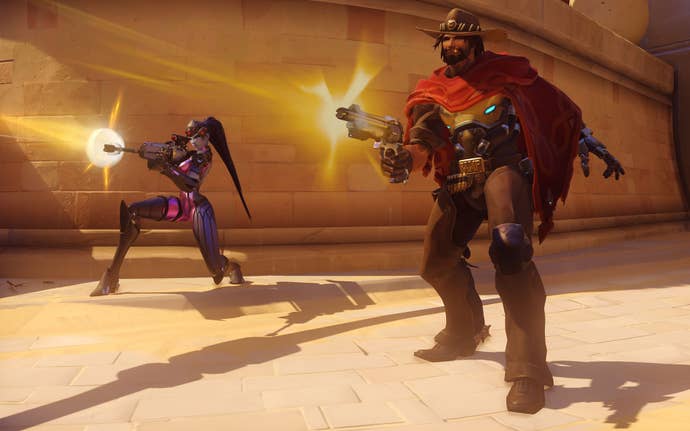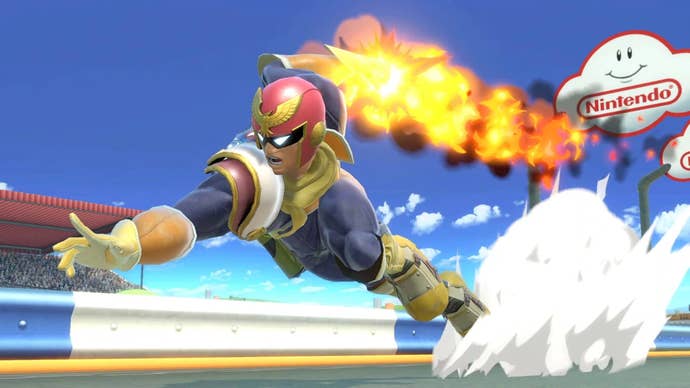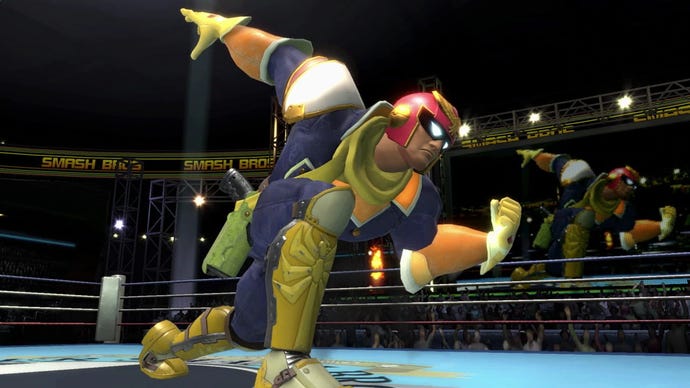Why These Players Are Making it Their Mission to Succeed Outside the All-Powerful Metagame
Inside the draw of the off-meta mindset.
This article first appeared on USgamer, a partner publication of VG247. Some content, such as this article, has been migrated to VG247 for posterity after USgamer's closure - but it has not been edited or further vetted by the VG247 team.
I hit Legend in Hearthstone with a rickety Rogue deck right before the wheels fell off. Its weaknesses were glaring during the entire grind; the seams burst open at the slightest bit of early game pressure, leaving me high, dry, and bleeding to death. Sometimes, I knew I could blissfully concede on turn three. The combos were spectacular, but they tended to gum up in my hand—all clashing patterns and spare parts. It was too slow, too greedy, and built for cheeky victory conditions. It was a game plan that left me with some sublime moments, and a 51% win rate. It didn't matter though. After an onslaught of Demon Hunters and Warlocks, the most powerful classes in the game during the campaign, my Rogue finally made it across the finish line. Esports-adjacent immortality, achieved from the dregs of Tier 2.
This is the instinct that informs every time I've attempted to take a multiplayer game seriously. In Street Fighter 4, I felt a kinship with Hakan—the oiled-up Turkish wrestler with a bizarre, slippery moveset and a comfortable residency in the bottom fifth of the power rankings. In Halo, I threw myself on the altar of the Needler in a desperate attempt to understand the franchise's most unique, and frequently misunderstood weapon. In my Overwatch heyday, I almost always set off with McCree, because his spaghetti western knockout-punch of an Ultimate is tantalizing enough to overcome the many things the deadlock cowboy has never done particularly well. I played a Retribution Paladin in vanilla World of Warcraft—if you know, you know—and held onto its stingy, mediocre DPS until a guild master handed me an ultimatum: respec to the much more palatable Holy, or never earn a raid spot again.

These are my stomping grounds: Tier 2 to Tier 3. I'm not a troll, I don't intentionally pick the worst characters or builds available. I don't main Dan, is what I'm saying. But for whatever reason, the gilded apex of a meta never appealed to me much. Instead, I appreciate the gawky outliers in the middle—the red-headed stepchildren of the design doc—where chaos and disorder is placed at a higher premium than competitive viability. There's nothing more seductive than the look on the face of the other person at the machine when you break up the endless string of Akumas and Cammys with a crimson, greasy weirdo. Nirvana, to me, is a strategy with a high ceiling, an inconsistent mean, and a very, very low floor.
Clearly, I'm not the only one with this attitude. Plenty of players feel most at home a half-scroll down the tier list. In fact, a dedication to a single character through thick and thin is almost a religion in fighting game circles. There is no shortage of EVO legends who've committed their mind, body, and soul to a single prizefighter, no matter what the EventHubs tiers has to say about them. Sometimes, a player and their preferred character seem to share the same identity on stream. Watching PR Balrog play anything other than Balrog is a disorienting experience. That's why I reached out to Griffin "FatalityFalcon" Miller, who has remained faithful to Captain Falcon with ascetic dogma throughout his entire time in the Super Smash Bros. professional coterie.
Miller is an everlasting fan favorite, but he's only occasionally poked his head above Tier 3 throughout his time on the battlefield. Still, Miller has generated a dissertation-length study of the character on his YouTube channel; breaking down the molecular animation differences in the Falcon Kick between series entries, spending more than an hour detailing every hairline nuance in the matchup guide. It's an all-consuming obsession; a life set to hard mode.
Miller tells me that growing up, he prescribed his own self-generated challenges to make his games harder. At 6 or 7, he was playing through his collection blindfolded, just to see if he could do it. You can sense that same instinct when Miller talks about his romance with Smash's sole F-Zero adoptee. Captain Falcon demands the ability to line up and execute combos with subatomic precision; to see the very lines of code on Final Destination. As far as Miller is concerned, there is no sensation more rewarding in Smash Bros. than winning with Captain Falcon. He refuses to ever deviate from the middle of the tier list, no matter how overtuned the next DLC character may be.

"Falcon's finishers are not that easy to hit outside of combos, but when you do hit them, you're showing your opponent that you knew exactly what was going to happen, and that feeling is what I love most about fighting games," he says. "Hypothetically, if Nintendo were to nerf Falcon, and he wasn't viable at all in competitive play, I'd probably just quit. I either want to compete with Falcon, or not compete at all."
Aaron Mickunas, a former journalist at Dot Esports, is not quite as dogmatic about his character preferences. But after 7,000 hours of League of Legends across 11 years, most of which conducted at the upper reaches of the game's competitive format, he too began to feel bored with the status quo. High-tier League is brutally airtight; usually boiling down to a rock-paper-scissors draft of a small handful of champions in each role. But despite that mandate, Mickunas rediscovered a spark for the game as he explored Riot's back-catalogue—embracing all the gawky prototypes and failed experiments that litter Runeterra's ancient bedrock.
"It started to feel that way three years ago. I queue up with my friends, and I'm just sitting there thinking, 'Boy, nothing sounds fun, I'm going to try this stupid thing,'" he says. "I have to be in a specific mood to chase the meta now. Like maybe I've lost a couple of games in a row, where I pull out something super strong."
Personally, I get a high from breaking the meta. Exclusively piloting the best possible stuff in multiplayer feels like cheating. The journey is more dramatic, and more mortal, when I'm hanging off the edge with some exploitable flaws, and I am honest enough to admit that there is a certain petty thrill to winning with rags against the semi-pro oligarchy. Mickunas doesn't necessarily feel the same way. He gets the appeal of self-enforcing an encumbrance in his League of Legends matches for an extra bit of triumphant sweetness, but that's only a small part of the appeal. Instead, he says his off-meta kink is the best way he can express a certain in-game creativity. His knowledge of Summoner's Rift has been polished to a mirror shine over a decade, but all it takes is a weird jungler and a harebrained strat to make the game feel brand new for 45 minutes.
"I know what the champion does, and I know what my role is, and I'll be sitting in select and I'll get an idea," he says. "Like, 'Hey, this part of this kit seems like it'd excel at this particular thing.' The satisfaction comes from generating a theory, and proving the theory in game. To see if it works as well as I thought it would."
Mickunas tells me that he only feels comfortable going off-meta with his friends. League of Legends, like every multiplayer game with a hardcore contingency, comes with its own stuffy customs and dictums. It is easy to get yelled at for showing up with Ryze in a Diamond game, even if your K/D/A dwarfs your solo-queue compatriots.
"[Picking an non-optimal champion] is usually done with the purpose of getting reactions out of people, but I always try super hard to win," adds Mickunas. "Usually I play all right no matter who I pick, just because I'm so familiar with the game."
That's one of the natural barriers to the Tier 2 lifestyle; first things first, you must convince any teammates that you intend to give it your all, even with Bastion.
None of us are going to quit our games of choice anytime soon. I am fully confident that whenever the next Hearthstone expansion drops, I too will be once again seduced by some silly deck lingering just below sea level. So if there is a way to truly diagnose these off-meta fixations—the sole reason why we ride or die with Nunu—it probably has to do with the fallout of a seismic shifts in the industry, as studios ask us to consider their hard work as a life-long infatuation, dotted by an interminable series of season passes and content road maps, just more options to stay entertained as our hours-played meter tick past the millennium mark.
I've been playing Hearthstone for six years now. Miller's Smash addiction began in grade school, and Mickunas' entire adult life has revolved around League of Legends. The sheer longevity of these titles would be unthinkable in the previous generation cycle; nobody played a single game for a decade straight, and Call of Duty jarheads weren't picking up color-coded loot. There is no way to finish these games; the closest anyone can get is to continue to explore their universes, and all the weird little meta fluctuations they encompass. Mickunas has simply played too much League to stop. It's in his DNA now. The breadth of his Steam library will be forever unconsummated, as long as there's one more crazy idea left in Runeterra.
"I don't think my [off-meta mindset] would be possible if the norm wasn't to play a single game forever," he says. "If I hadn't developed this kind of muscle, I probably wouldn't be playing League anymore. Every time I log in, there's something I can think of that I haven't done before."

